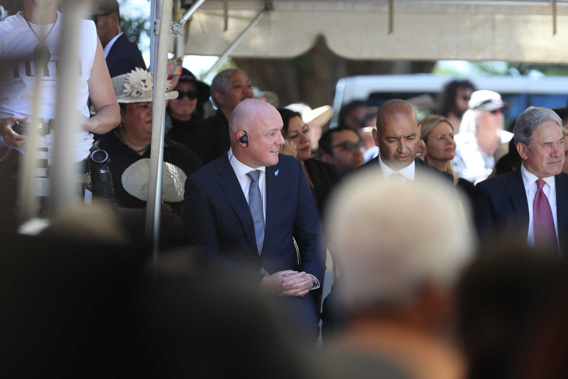
The dead duck got deader this week.
After weeks of tepid, non-committal answers on his party's post-first reading support of David Seymour’s Treaty Principles bill, Chris Luxon put the final nail in the legislation’s coffin.
National will not support the bill in its second reading. No ifs, no buts, no maybes.
Even if there is a ground-swell of support, the legislation’s still dead in the water.
This shouldn’t come as a surprise.
Senior NZ First Minister Shane Jones ruffled a few Act feathers in January when he ruled out lending the bill his party’s support.
It would be fair to think Seymour would be equally, if not more, irked by Luxon’s lack of support.
But politics is a funny game.
In the long run, having his bill shot down by his right-wing bedfellows may prove to be advantageous to the Act Party.
The media coverage of the debate has been vastly negative with very few public champions – but that doesn’t mean the idea of re-examining the Principles of the Treaty has no public support.
A Taxpayers’ Union-funded Curia poll from October showed 45 percent of those polled were in favour of a referendum on the principles of the Treaty – 25 percent were opposed.
That’s 7 percentage points more support than National won at last year’s election.
It’s a crude, simplistic comparison but it goes to show that New Zealand is a more conservative country that is often portrayed in the media.
And some of what played out at Waitangi this week would not have played well for that large conservative constituency.
Winston Peters was antagonistic on the pae – but he had a point.
“Whoever said we’re getting rid of the Treaty of Waitangi?” he asked those who were heckling him.
“You tell me whoever said: ‘We’re getting rid of the Treaty of Waitangi?’”
Some shouted back: “David Seymour”.

But Seymour was quick to clarify during his speech that this is not Act’s position. His calls for a referendum on the Treaty Principles are just that – an examination into how the Waitangi Tribunal interprets the principals.
But perhaps the most shameful moment was when Senior Māori Act Minister Nicole McKee was heckled during her speech at the pōwhiri.
Speaking in fluent Te Reo, other MPs stood and moved to her side as a show of support as the shouting began.
McKee is the first woman to ever speak at the Waitangi pōwhiri -- a proud moment for McKee whose iwi is Ngāpuhi. She was on her marae.
“Some wanted to drown me out and I think that more had to do not with what I was saying, but rather the fact that I was even speaking,” she told media after the incident.
“We are here to listen, and to move this country forward as one.”
That message has seemingly been lost in the so-called debate around the Treaty Principles.
But just because National’s shut the bill down does not mean Act has given up the fight.
This week, the party launched a website dedicated to building support for the doomed bill and combatting, what Seymour says is, a wave of misinformation.
It won’t work.
The bill is still dead in the water and no amount of support garnered by Seymour will be enough to change Luxon’s mind.
But a consolation prize may be a wave of voter support for Act, come the 2026 election.
Those right-leaning voters unhappy with National moving away from what they consider to be an important debate will find a welcoming new home with Act.
It may not be a substantial slide in support.
But for minor parties, even a little can mean a lot when shoring up negotiating positions – just ask National who were forced to work with NZ First this term by a whisker.
The election might be three whole years away, but for Act – some of the battle lines were drawn this week.
And it was Christopher Luxon who drew them.
Take your Radio, Podcasts and Music with you









